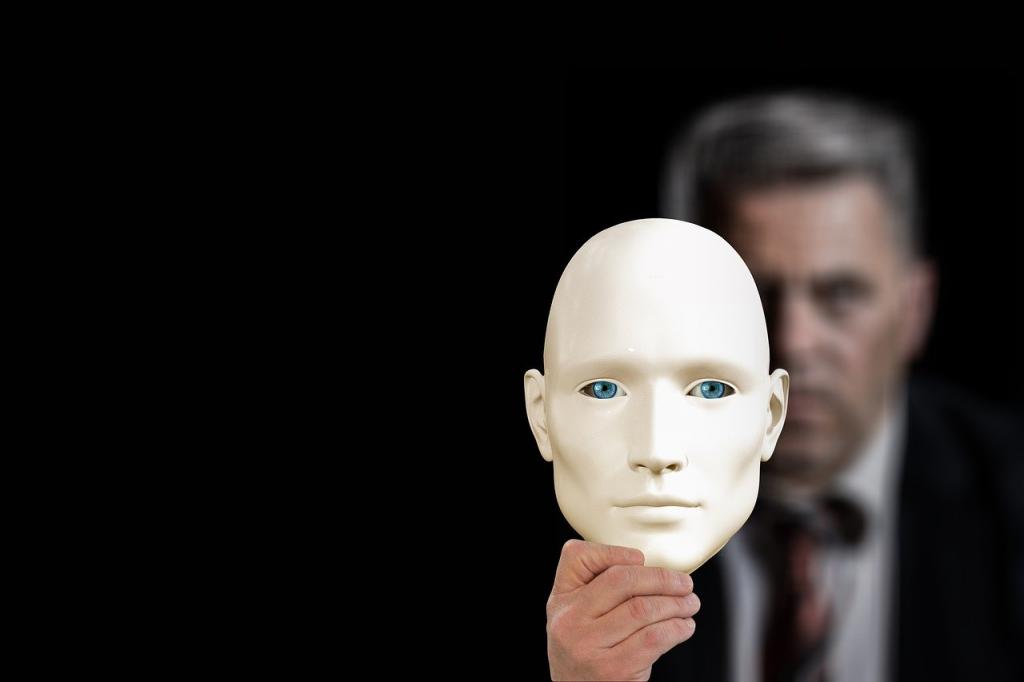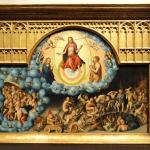Yesterday we discussed a Christian perspective on institutions. Today we need to discuss a Christian perspective on the individual.
Though social institutions are valuable, according to the doctrines of the estates and vocation, and though our current anti-institutionalism is not healthy, institutions can be dysfunctional and even idolatrous. And though God created us to be social beings–“it is not good that the man should be alone” (Gen 2:18)–it is individuals, not social institutions, who are saved and will enjoy eternal life. So, in an important sense, the individual has priority over social institutions.
As C. S. Lewis observed, “There are no ordinary people. You have never talked to a mere mortal. Nations, cultures, arts, civilisations—these are mortal, and their life is to ours as the life of a gnat. But it is immortals whom we joke with, work with, marry, snub, and exploit—immortal horrors or everlasting splendours” (“The Weight of Glory“).
Most Americans value individualism to a fault. But it was not always this way, and in many cultures it still isn’t. Cameron Hilditch has written an excellent essay entitled The Christian Invention of the Human Person.
He points out that the word “person” comes from the Greek word prosopon and its Latin equivalent persona. These words meant literally “mask,” referring to the mask that actors would wear in a play, reflecting the role they were supposed to assume. In the ancient world, a “person” was defined solely by the social role that they played. “Different social stations were thought almost to be different species, sharing nothing in common,” says Hilditch, “and no one was thought to have any kind of individual existence apart from the role they played in the state.” Some people, though, were so socially insignificant that they had no status whatsoever. In Rome, slaves were defined as “non habens personam.” They were “non-persons,” having no rights or social status, being little more than tools.
As they themselves saw it, people in the ancient world really existed only to the extent that they participated in some larger project, whether on the stage or in the city, which constituted their “ground and final justification.” As [John] Zizioulas goes on to write, “identity – that vital component of the concept of man, that which makes one man differ from another, which makes him who he is — [was] guaranteed and provided by the state or by some organized whole.” For this reason, the historian Larry Siedentop writes that in the ancient city, “there was no notion of the rights of individuals against the claims of the city and its gods. There was no formal liberty of thought or action. . . . Citizens belonged to the city, body and soul.” If the individual had any value at all, it was only by reference to some organized collective.
The advent of Christianity overturned this old order of the ages, which had reigned more or less unchallenged since the dawn of civilization until the first Easter morning in Jerusalem some 2,000 years ago. The proclamation of the first Christians — that God had become man — obliterated the conception of personhood that predominated in the ancient world. If Jesus is a “persona,” as the apostolic and patristic fathers of the Church maintained, and he has died and been raised as a representative of the entire race, then we are all more than society and the state would make of us. A gap opens up between our identity and our social obligations. The individual sets foot on the stage of human history for the first time. “There is neither Jew nor Greek, there is neither slave nor free, there is neither male nor female; for you are all one in Christ Jesus.” [Galatians 3:28]
We see each other increasingly as flattened-out avatars of abstract collectives from which we derive our sense of solidity and meaning. We are Republicans, Democrats, anti-maskers, anti-vaxxers, pro-lifers, pro-choicers. The unique and unrepeatable person that lies buried underneath all of these labels, the pre-political person that Jesus delivered to each of us upon the cross, is being crowded out and suffocated. Furthermore, we have no reason to believe it will survive our cultural abandonment of the faith that brought it to birth.
Americans today may distrust institutions, but they are replacing them with other “collectives,” such as race, sex, gender, and political ideology. “Identity” has become a common buzzword, but today it has reference not to a person’s distinct individuality but to what group a person belongs to. That is a reversion to the pre-Christian notion of “persona.” Today we need to recover not only institutions, in their proper sense, but also what it means to be an individual.
Image by Gerd Altmann from Pixabay













